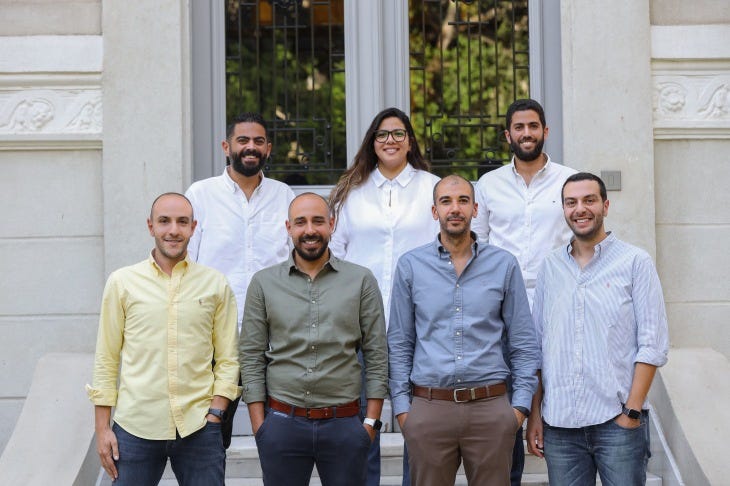Kenzz, an e-commerce platform bringing shopping to the masses in Egypt and the Middle East, has announced a $3.5 million seed round. Outliers Venture Capital, a MENA-focused venture capital firm located in the United States, led the investment. Among the participants are HOF Capital, Foundation Ventures, and Samurai Incubate.
The seed investment will be used by the firm to expand its product categories, broaden the product categories on its platform, acquire people, and invest in technology when it releases its app.
Why The Investors Invested
Since its inception, the firm has gained significant traction. According to founder Ahmed Atef, thousands of clients utilised the site during its two-month soft launch, with 50% ordering from outside Egypt’s major cities.
Read also Egypt’s Glamera Plans Regional Expansion With New Funding
“Those numbers help prove this vast potential outside the big cities where people were not comfortable buying online. But when you’re so relevant to them, in terms of brand products, prices and experiences, you unlock this huge potential,” Atef said.
Sarah AlSaleh, a partner at Outliers Venture Capital, said in a statement that the asset-light Kenzz is tackling two major concerns that existing e-commerce incumbents are not: inexpensive and dependable last-mile logistics and an unwavering consumer trust philosophy. Outliers invested in Kenzz because of its founding team, which includes veterans from Vodafone, Google, Amazon, and Jumia.
“The diversity and depth of Kenzz’s founding team strongly positions them to combine a multitude of experiences and expertise into creating a category-defining company and e-commerce champion for Egypt,” said the partner.

A Look At What The Startup
Ahmed Atef, Mahmoud Al Silk, and Moataz Sami formed the firm in February 2022 with the goal of expanding e-commerce usage in Egypt.
Online consumers in Egypt mostly buy from large e-commerce platforms such as Souq, which will be renamed as Amazon Egypt in 2021, Jumia, and Noon, as well as social commerce sites that use Facebook pages and groups in a B2B2C fashion.
Read also Cellulant Partners Lusaka Chamber of Commerce to Digitize Payments for Businesses in Lusaka
While both models have increased e-commerce activity in Egypt, Atef contends that the larger e-commerce businesses ignore the mass market and instead focus on the three largest cities — Cairo, Alexandria, and Giza — while smaller social platforms tend to deliver unreliable and unstructured service. As a result, Kenzz was created to cover the gaps left by the two models: make things available to the general market and sell them in an orderly fashion.
Kenzz’s model is similar to that of players such as Taager since it is social. The mass e-commerce solution, on the other hand, takes a B2C strategy by eliminating the middleman/resellers, sourcing items directly from local producers, and offering them to customers. As a result, customers know which brand is marketing to them, according to Atef. When consumers make group purchases with friends and family, they can receive savings of up to 65%. According to the CEO, procuring directly from manufacturers and importers allows it to negotiate the best discounts for customers, and the group buying function allows for more recommendations, lowering client acquisition expenses. Group orders can also be shipped to a single location to decrease customer delivery expenses as well as Kenzz’s logistical costs.
“Most users didn’t see the need to pay for deliveries as they could buy offline and get the product themselves. However, they are finding out that they pay more for transportation. So what was interesting in the pilot is that we’ve seen that people want to share this burden as it became a major pain point when we talked with consumers,” the chief executive said. “So when you’re buying with your friends, we can deliver the order to one place. They get to unlock more savings when they choose this approach.”
Atef further claimed that Kenzz’s methodology benefits stakeholders on the other end, such as local manufacturers and SMEs, by giving data on what customers want and access to such consumers, among other things.
Read also Kenya Tea Development Agency Brews Perfect Technology Mix
Kenzz has yet to completely enter the market since it is fine-tuning services to satisfy consumer demand, according to Atef.
“We’re going after a completely different segment that Amazon and the big platforms are not looking at as they are centralized in big cities and towards the people who are comfortable buying online,” said Atef. “What we’re doing is bringing that experience much closer to the masses and building a reliable, trustworthy e-commerce platform that caters specifically for the mass market, solving for the barriers to buying, whether it’s trust, affordability and relevance, while capitalizing on social engagement and social interaction aspects of e-commerce.”
Kenzz e-commerce Kenzz e-commerce
Charles Rapulu Udoh

Charles Rapulu Udoh is a Lagos-based lawyer, who has several years of experience working in Africa’s burgeoning tech startup industry. He has closed multi-million dollar deals bordering on venture capital, private equity, intellectual property (trademark, patent or design, etc.), mergers and acquisitions, in countries such as in the Delaware, New York, UK, Singapore, British Virgin Islands, South Africa, Nigeria etc. He’s also a corporate governance and cross-border data privacy and tax expert.
As an award-winning writer and researcher, he is passionate about telling the African startup story, and is one of the continent’s pioneers in this regard. You can book a session and speak with him using the link: https://insightsbyexperts.com/view_expert/charles-rapulu-udoh
